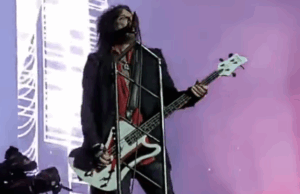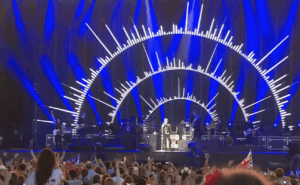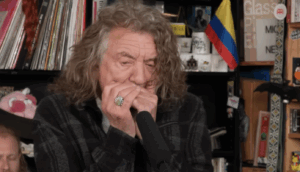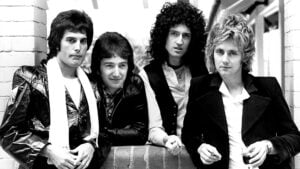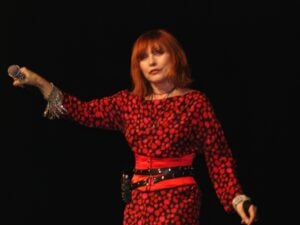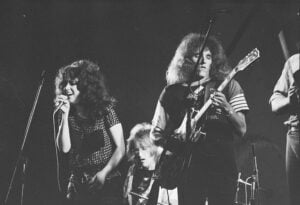The Stories Uncovered About David Bowie After His Death

via David Bowie / YouTube
David Bowie wasn’t just an artist; he changed into different people all the time and rethought what it meant to be a rock star. From the late 1960s on, he inspired many artists by combining music, fashion, and performance into his own unique style. Bowie always surprised fans by changing with the times and taking on new roles like Ziggy Stardust, Aladdin Sane, and the Thin White Duke.
He worked as a musician for many years and made some of the most famous rock songs ever. From Space Oddity in 1969 to Rebel Rebel in 1974 to Blackstar, his haunting farewell record in 2016, he never stopped trying new things with his music.
But despite his outlandish characters, Bowie was known for being very private. A lot of his personal life was kept secret, which made his fans want to know more. Many people didn’t start to learn more about the man behind the songs until after he died in 2016.
David Bowie and Mick Jagger: A Friendship Beyond the Spotlight
David Bowie and Mick Jagger were two of the biggest names in rock, but they only officially collaborated once—on their 1985 cover of “Dancing in the Street”. The song became a huge hit, reaching the Top 10 in the U.S. and claiming the No. 1 spot in the U.K. While their musical partnership was brief, their friendship spanned decades.
Bowie’s former wife, Angela, once claimed the two had a romantic fling in the ‘70s, but whatever their relationship was, they kept it private. After Bowie’s passing in 2016, Jagger reflected on their bond, describing it as a mix of mutual admiration, shared experiences, and a bit of friendly competition. “There was always an exchange of information within our friendship,” he told Rolling Stone.
Jagger also revealed that Bowie had an eye for fashion, even checking Jagger’s clothing labels. “He used to copy me sometimes, but he’d be very honest about it,” he said. Their friendship was built on respect, style, and a lifetime of rock and roll.
David Bowie’s Attempt to Help an Old Friend Return to Music
In the 1970s, David Bowie had a well-known romance with Claudia Lennear, a talented backing vocalist who later ventured into a solo career. She released her only album, Phew!, in 1973, but when it failed commercially, she stepped away from the music industry entirely.
Decades later, their paths crossed again. In 2014, after seeing Lennear featured in the documentary 20 Feet from Stardom, Bowie reached out. He encouraged her to return to music and even started writing songs for a possible comeback album. Lennear revealed their collaboration just weeks after Bowie’s passing in 2016, saying, “We had this very strange writing relationship. He was writing music and I was writing lyrics,” she told The Daily Mail.
Bowie was deeply invested in the project, sending her one of his final messages: “Send me some lyrics. Don’t forget.” Though he didn’t live to see it completed, his belief in Lennear’s talent never wavered.
How David Bowie Helped Trent Reznor Overcome Addiction
When David Bowie invited Nine Inch Nails to join his 1995 Outside tour, it felt like a perfect pairing—two generations of forward-thinking, genre-defying musicians coming together. Bowie and Trent Reznor also collaborated on the 1997 electro-rock track I’m Afraid of Americans, but their connection went much deeper than music.
At the time, Reznor was struggling with substance abuse. “My way of dealing with life was to numb myself with drugs and alcohol,” he later wrote in Rolling Stone after Bowie’s passing. Realizing he was on a dangerous path, he turned to Bowie, who had battled his own demons in the past. Bowie offered guidance and encouragement, telling him, “You know, there is a better way here, and it doesn’t have to end in despair or in death, in the bottom.”
Years after getting sober, Reznor tried to thank Bowie for his support. “I don’t even think I finished the sentence; I got a big hug. And he said, ‘I knew. I knew you’d do that. I knew you’d come out of that.'” Bowie’s wisdom and kindness left a lasting impact, helping Reznor find a new path forward.
David Bowie’s Private Battle with Cancer
David Bowie’s death in 2016 shocked the world. Fans had no idea he was sick, making the news feel sudden and heartbreaking. On January 10, a statement on his Facebook page confirmed, “David Bowie died peacefully today surrounded by his family after a courageous 18-month battle with cancer. While many of you will share in this loss, we ask that you respect the family’s privacy during their time of grief.” Just two days earlier, Bowie had celebrated his 69th birthday with the release of Blackstar, an album that now feels like his final farewell.
Only a small circle of family and close friends knew about his diagnosis. In the summer of 2014, he learned he had liver cancer but kept it private. By January 2015, while working on Blackstar, he was undergoing chemotherapy. Despite his treatments, Bowie remained dedicated to his music, often recording for five hours a day after morning chemo sessions. His producer, Tony Visconti, and the band eventually noticed changes—his hair and eyebrows had thinned—but Bowie never let his illness define him.
David Bowie’s Final Wishes and Legacy
David Bowie planned for the future long before his passing. In 2004, he prepared his will, but its details remained private until late January 2016, a few weeks after his death. The documents revealed that Bowie had built a fortune worth around $100 million, partly thanks to his Bowie Bonds, a financial venture that allowed investors to buy shares of his music rights in the ‘90s.
His wife, model Iman, was the main beneficiary, receiving half of the estate in quarterly payments, along with their Manhattan luxury apartment. His son, filmmaker Duncan Jones, and teenage daughter, Alexandria Zahra Jones, inherited the rest. Zahra also received ownership of Bowie’s country home in New York. His longtime assistant, Corinne Schwab, was gifted $2 million, while his childhood nanny, Marion Skene, was left $1 million.
Bowie also had specific funeral wishes—he requested cremation, with his ashes spread in Bali, ideally through a Buddhist ceremony. Even in death, he remained as thoughtful and intentional as he was in life.
Blackstar: David Bowie’s Final Farewell
On January 8, 2016, David Bowie released Blackstar, his final studio album. Recorded in secrecy with a New York jazz quartet and longtime producer Tony Visconti, the album was immediately praised for its bold experimentation. Rolling Stone called it “Bowie’s best anti-pop masterpiece since the Seventies,” while The Independent described it as “the most extreme album” of his career. The New York Times noted it was “at once emotive and cryptic, structured and spontaneous and, above all, willful.”
Two days later, Bowie passed away from cancer—a diagnosis he had kept private. Suddenly, Blackstar took on a new meaning. Lyrics that once seemed mysterious now felt like parting words. “It was a farewell gift,” Visconti told The Guardian. Album designer Jonathan Barnbrook added, “This was a man who was facing his own mortality.” Even the title, represented by a simple black star rather than the word itself, symbolized finality. Bowie, as always, left the world on his own terms—with art that spoke beyond his lifetime.
David Bowie Almost Played Gandalf in The Lord of the Rings
David Bowie wasn’t just a music legend—he had an impressive acting career too. From The Man Who Fell to Earth to Labyrinth and The Prestige, he brought his unique presence to the screen. But one of the most intriguing roles he almost played? Gandalf in The Lord of the Rings trilogy.
After Bowie’s passing in 2016, actor Dominic Monaghan, who played Merry, recalled spotting him at a casting office. “As I was reading a magazine waiting, David Bowie came in and signed [the casting director’s] little list and went in. And I’m assuming he read for Gandalf. I can’t think of anything else he would’ve read for,” he told HuffPost.
Director Peter Jackson reportedly wanted Bowie for the role, but scheduling conflicts got in the way. In the end, the part went to Sir Ian McKellen. While Bowie never made it to Middle-earth, imagining him as the wise and powerful wizard is a fascinating “what if” in movie history.
David Bowie and Brian Eno Were Planning One Last Collaboration
David Bowie and Brian Eno shared a creative partnership that spanned decades, most famously producing the Berlin Trilogy—Low, “Heroes”, and Lodger—between 1977 and 1979. They reunited in 1995 for Outside, and despite living on opposite sides of the Atlantic, they remained close friends.
After Bowie’s passing in 2016, Eno reflected on their unique friendship. “With him living in New York and me in London — our connection was by email,” he shared via the BBC. “We signed off with invented names: some of his were Mr. Showbiz, Milton Keynes, Rhoda Borrocks, and The Duke of Ear.”
Beyond their playful exchanges, Bowie and Eno had been discussing a new project. “About a year ago, we started talking about ‘Outside’ — the last album we worked on together,” Eno revealed. “We both liked that album a lot and felt that it had fallen through the cracks. We talked about revisiting it, taking it somewhere new. I was looking forward to that.” Sadly, that collaboration never happened.
David Bowie Was Picky About His Collaborations
David Bowie loved working with other musicians, teaming up with legends like Bing Crosby, Queen, and Iggy Pop. But he was also known for turning down offers—especially from contemporary rock bands. Many artists only shared their rejection stories after Bowie’s passing in 2016, revealing just how selective he really was.
Dave Grohl, who played with Bowie in 1998 and contributed to his 2002 album Heathen, once invited him to collaborate on a movie soundtrack. Bowie’s response was brutally honest. “I watched the movie and I got to be honest, it’s not my thing,” he emailed Grohl.
The Red Hot Chili Peppers repeatedly asked Bowie to produce their records, but he declined every time. And Coldplay? Bowie wasn’t impressed. The band approached him for a song, but as Chris Martin recalled, Bowie responded with a blunt, “It’s not a very good song, is it?” Guitarist Will Champion later admitted, “He was very discerning. He wouldn’t just put his name to anything.”
David Bowie’s Lost Version of My Way Finally Emerged
In the late 1960s, before he became a rock icon, David Bowie took on songwriting gigs to make extra cash. One of his assignments in 1968 was writing an English version of the French song Comme d’habitude. He completed the task but wasn’t impressed with the result. “I wrote some really terrible lyrics — I think it was called ‘Even a Fool Learns to Love,’” Bowie admitted in a 2002 interview (via Australia’s ABC).
Thinking the song would be forgotten, Bowie was shocked when he later heard a familiar tune on the radio in 1969—but with different lyrics. Pop star Paul Anka had rewritten it and given it to Frank Sinatra, who turned it into My Way. Frustrated, Bowie set out to write something just as powerful, leading to his 1973 classic Life on Mars?.
For years, Even a Fool Learns to Love remained unheard. It finally surfaced in 2016 on BBC Radio Four’s The People’s History of Pop, months after Bowie’s passing.
How David Bowie Inspired Lorde’s Confidence
After David Bowie’s passing on January 10, 2016, tributes poured in from artists, celebrities, and even world leaders. Among them was alternative pop star Lorde, who had a rare personal connection to Bowie. Unlike many admirers, she actually met him—and it left a lasting impact.
Their encounter happened in 2013 when Lorde was just 16 and at the start of her meteoric rise. After performing at a Vogue event honoring Tilda Swinton, she was introduced to Bowie by editor Anna Wintour. That moment changed everything for her.
“That night something changed in me — I felt a calmness grow, a sureness,” Lorde shared in a heartfelt Facebook post. “I think in those brief moments, he heralded me into my next new life, an old rock and roll alien angel in a perfect grey suit.” She realized then that Bowie had given her the confidence to embrace her unique style. “I was proud of my spiky strangeness because he had been proud of his.”
David Bowie’s Secret Passion for Fine Art
David Bowie wasn’t just a music icon—he was also a dedicated art collector. After his passing in 2016, his estate grew even larger, thanks to a stunning private collection of over 400 pieces. Over the years, Bowie quietly invested in works by influential artists like Damien Hirst and Jean-Michel Basquiat, as well as British modernists such as Harold Gilman and Peter Lanyon. His collection didn’t stop at paintings—he also owned postmodern Memphis-style furniture and even a section of a 16th-century altarpiece mural by Italian master Tintoretto.
In November 2016, after a 10-day public exhibition, Sotheby’s auctioned off Bowie’s collection, bringing in more than $30 million. A significant portion of that came from his two Basquiat paintings, which he had purchased in 1995—the same year he portrayed Andy Warhol in the biopic Basquiat. While Bowie was known for pushing artistic boundaries in music, his passion for fine art was another side of his creativity that few got to see.






